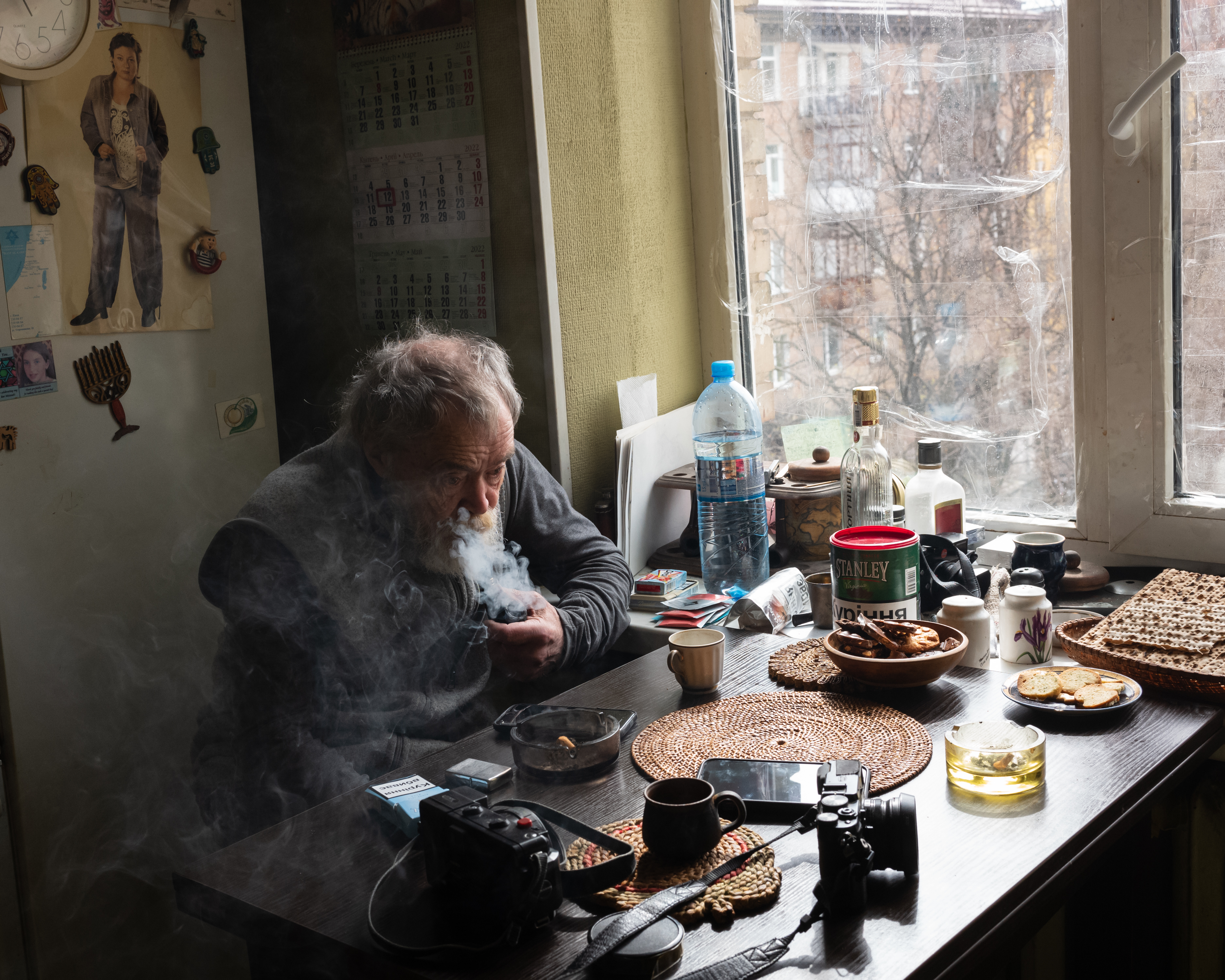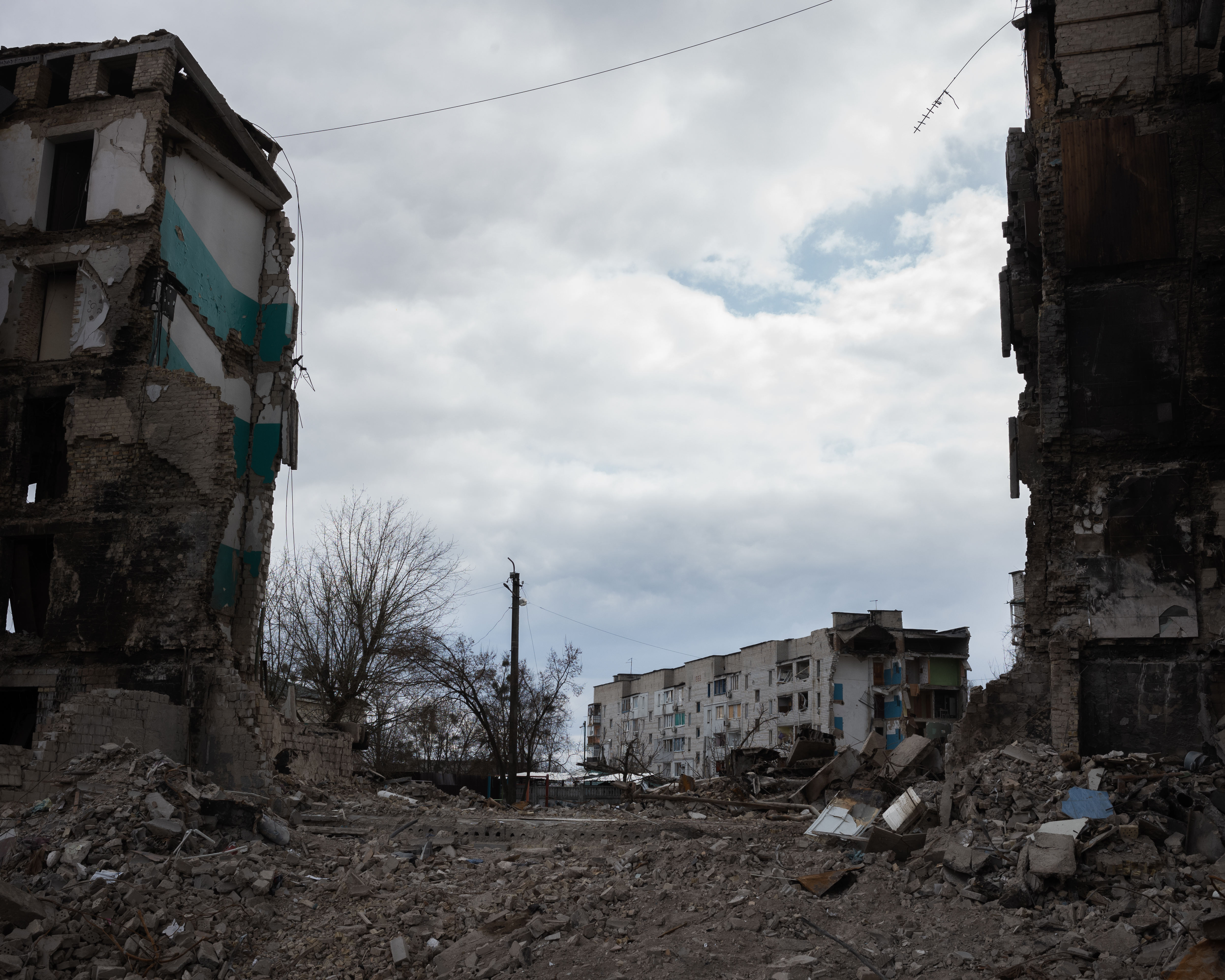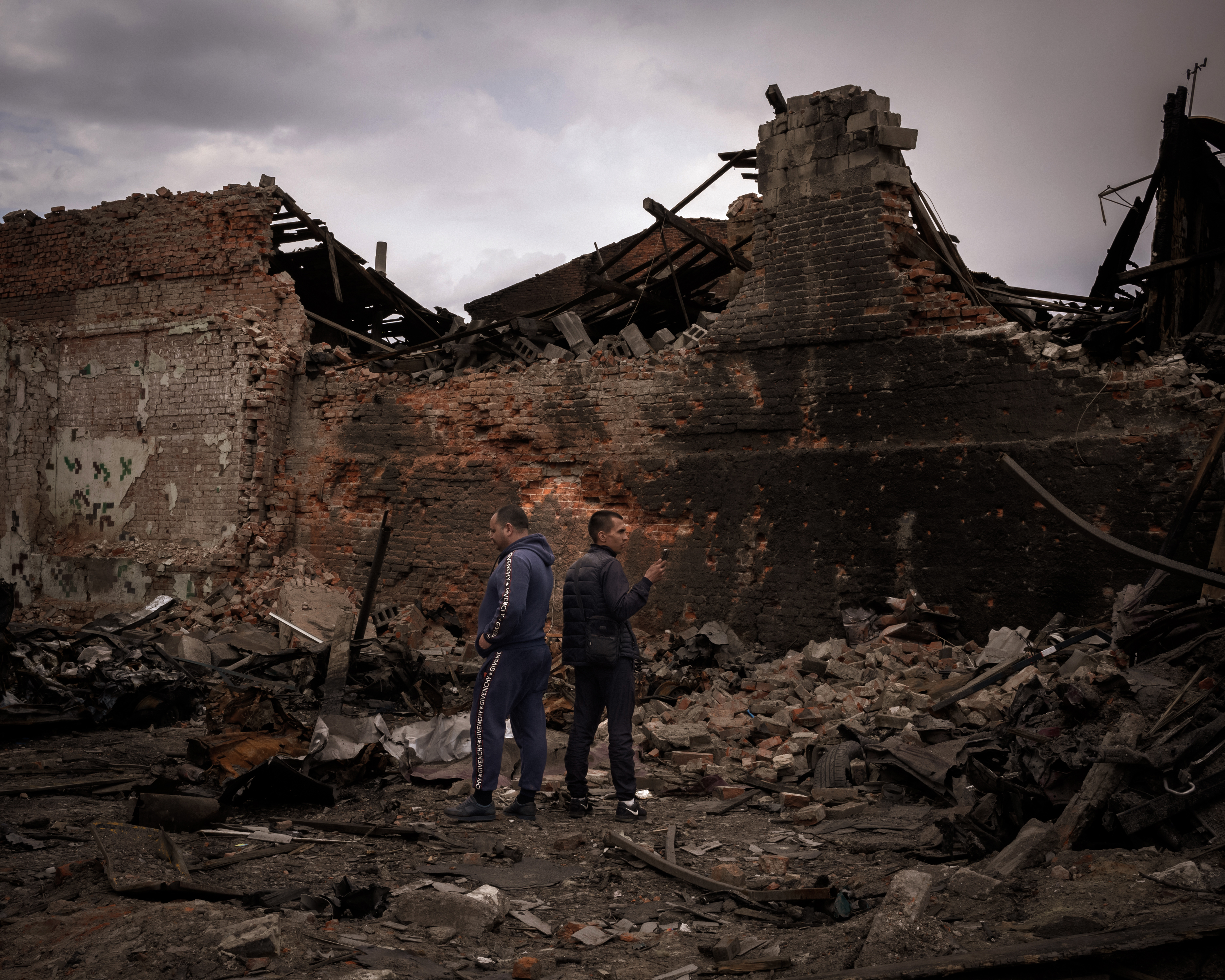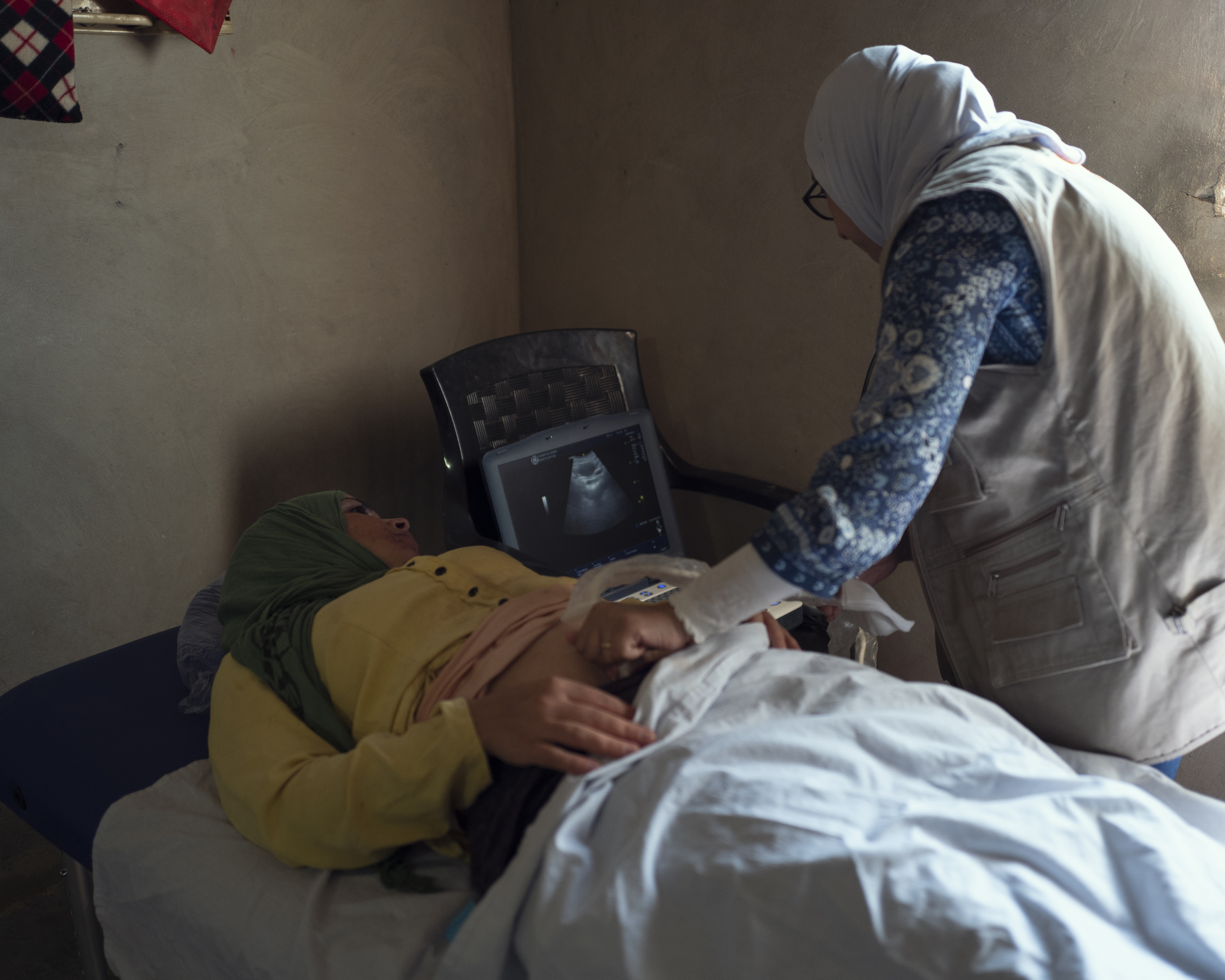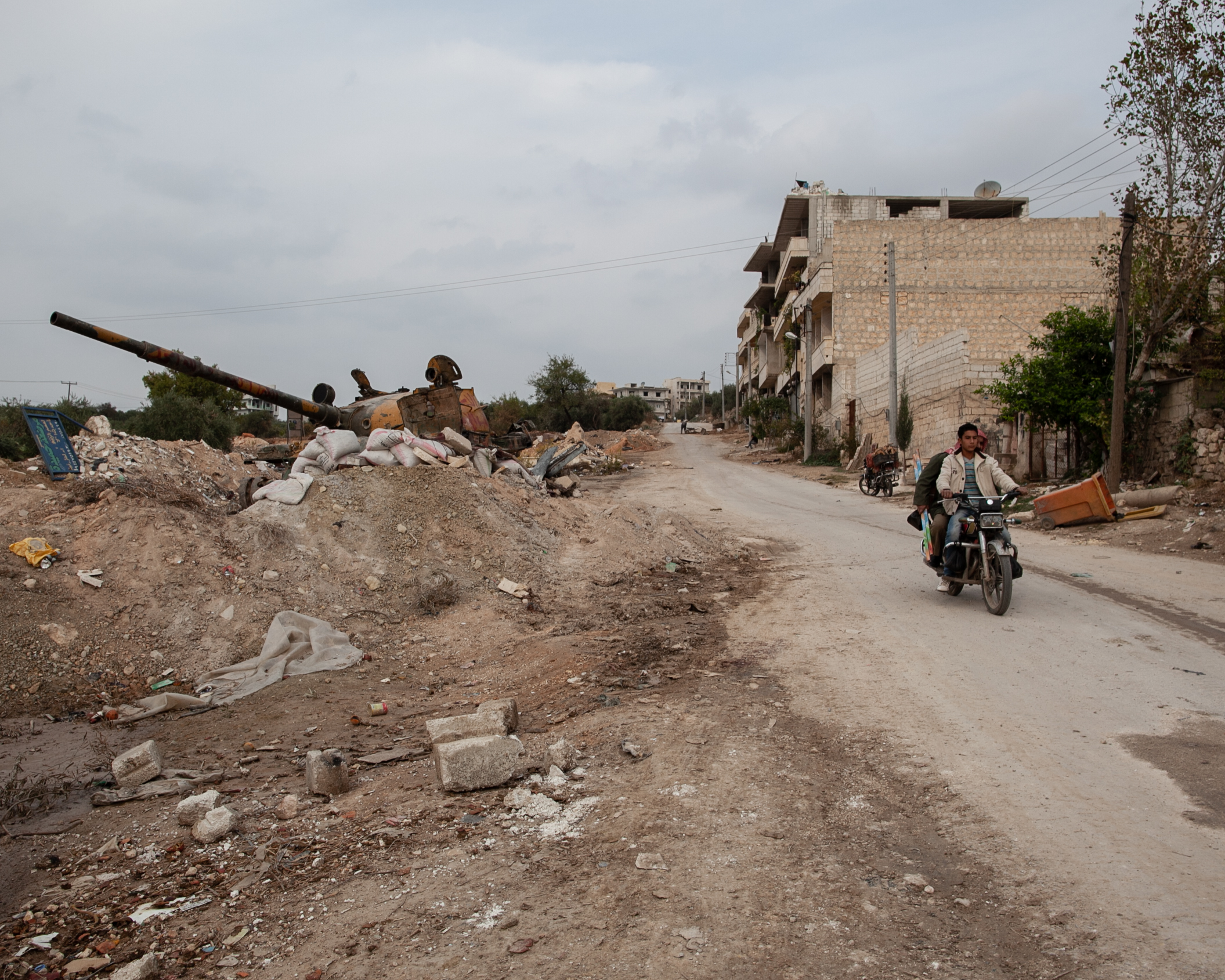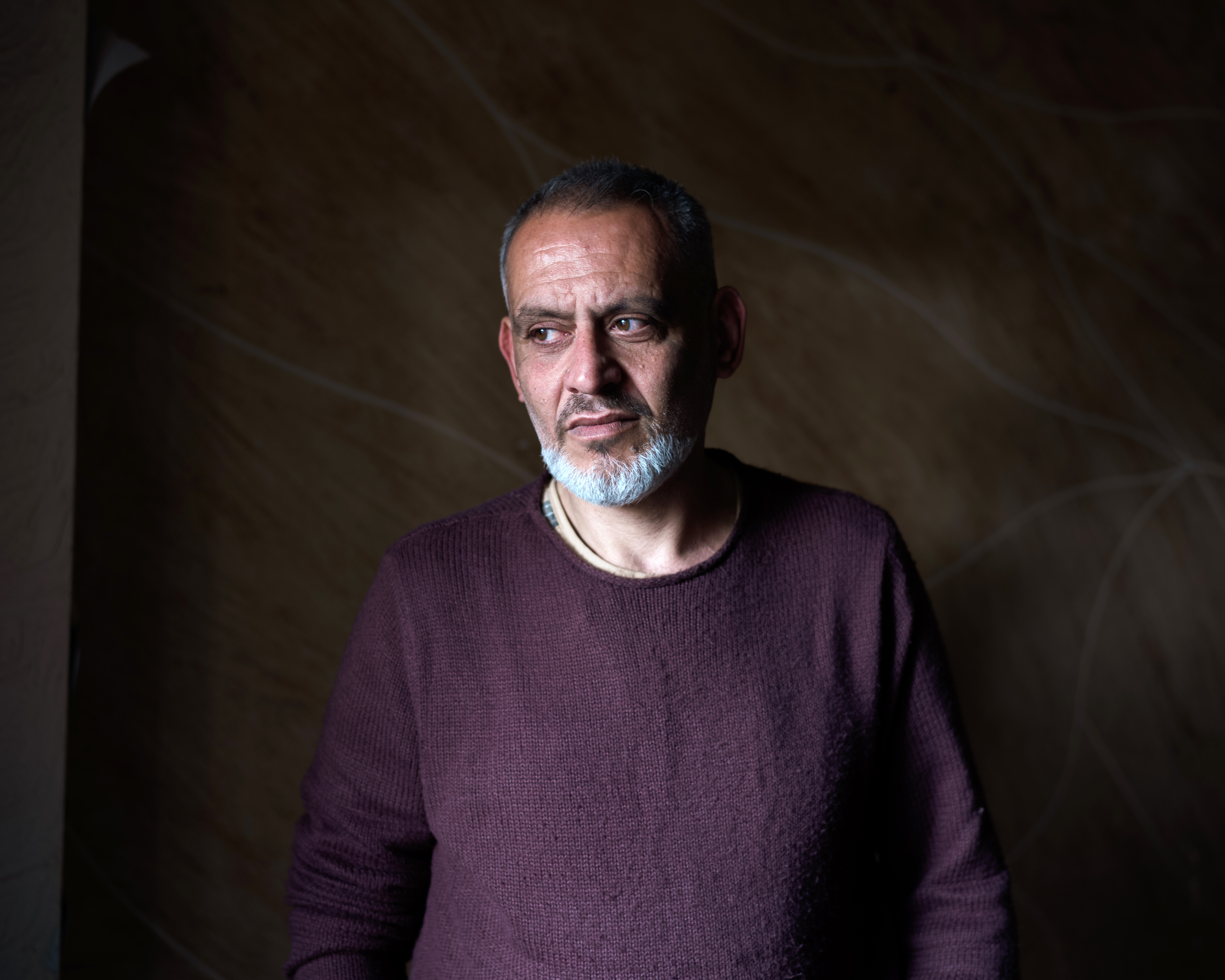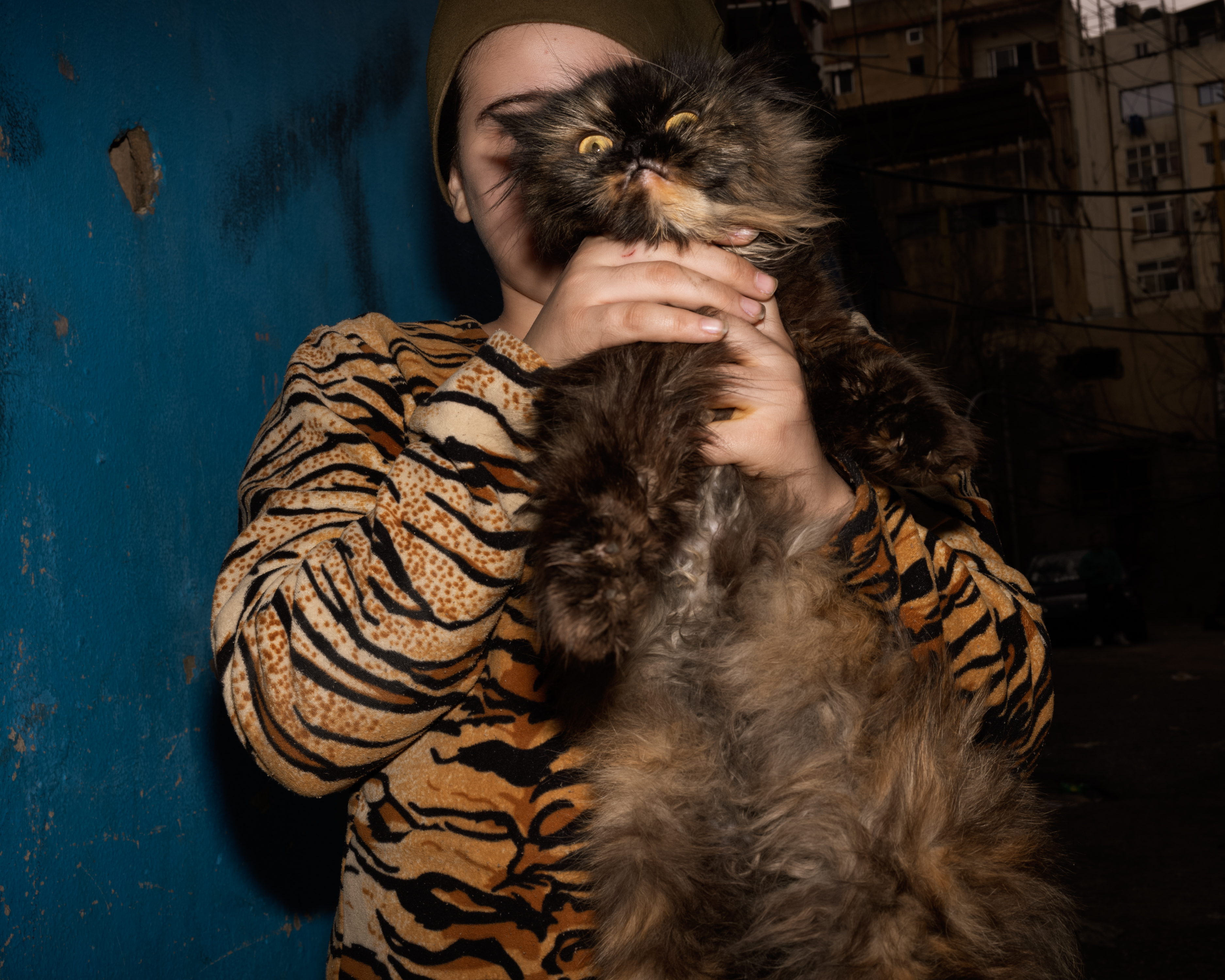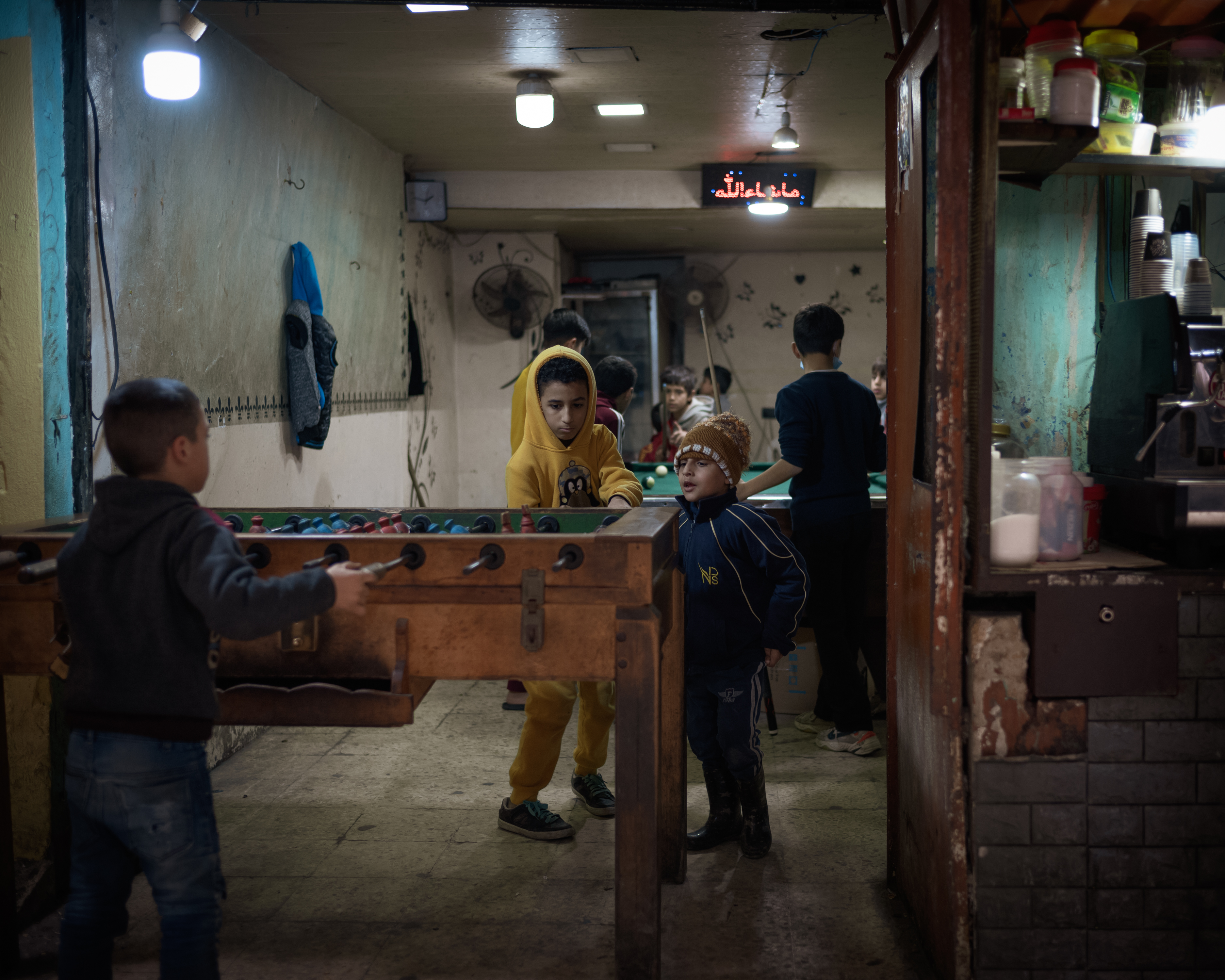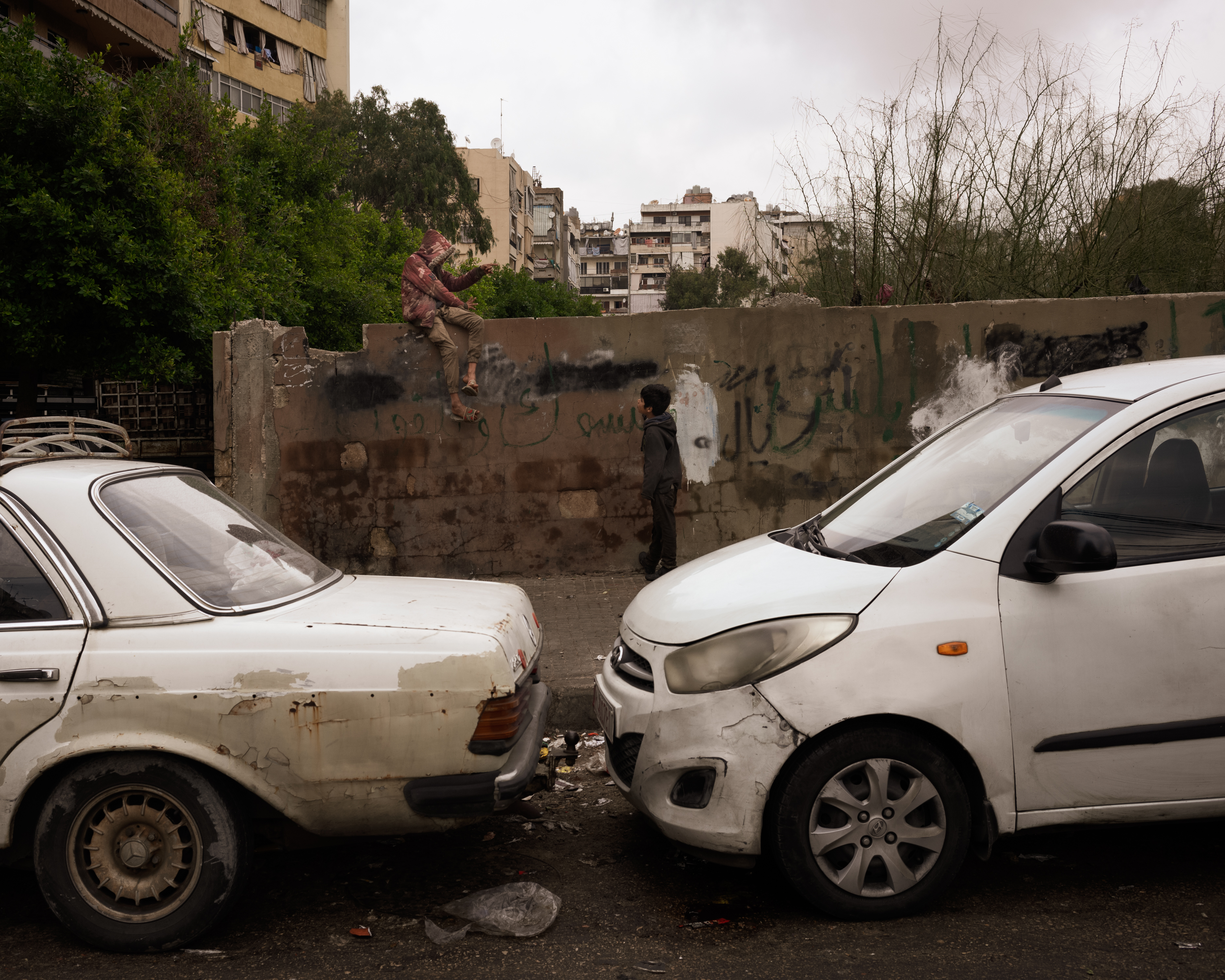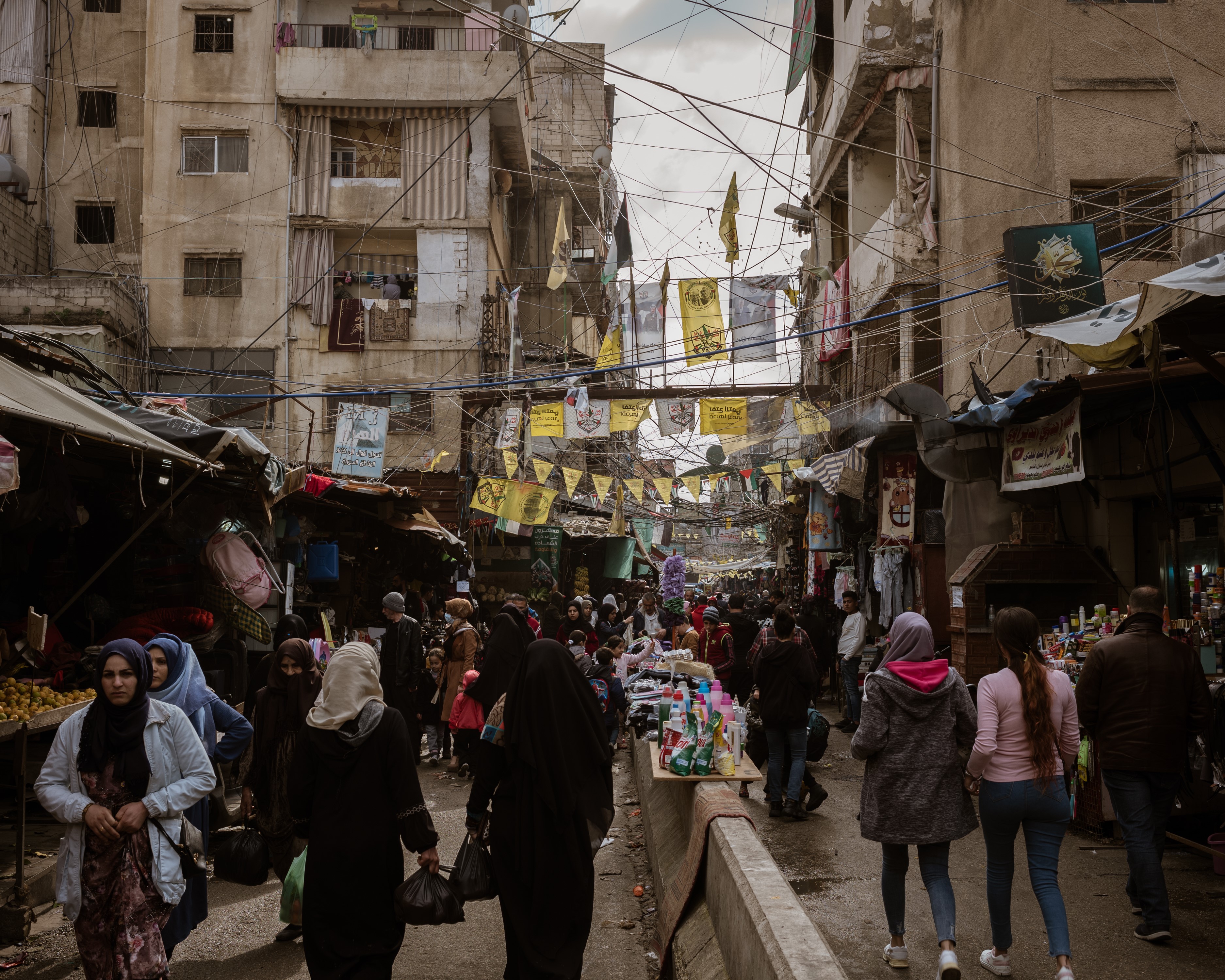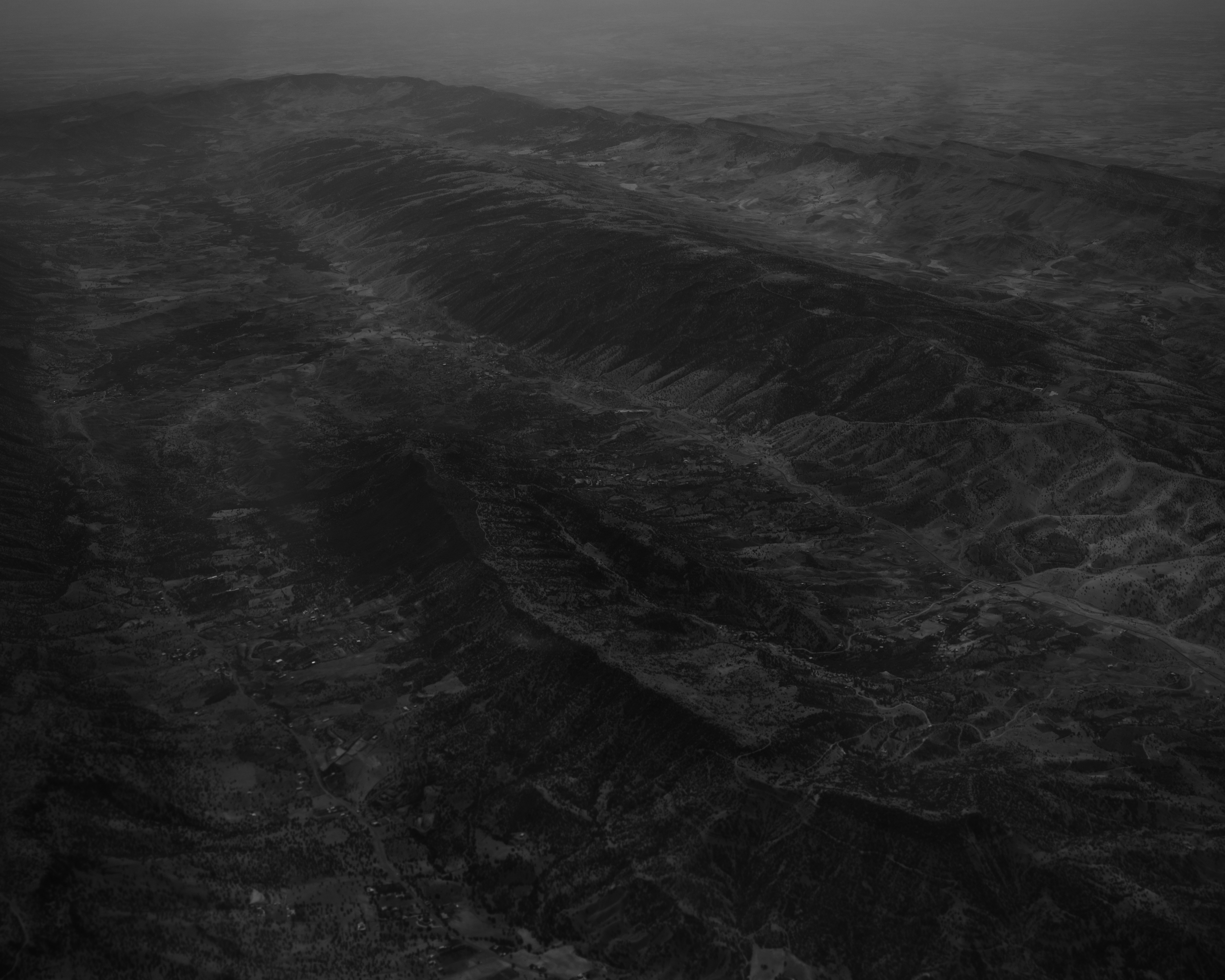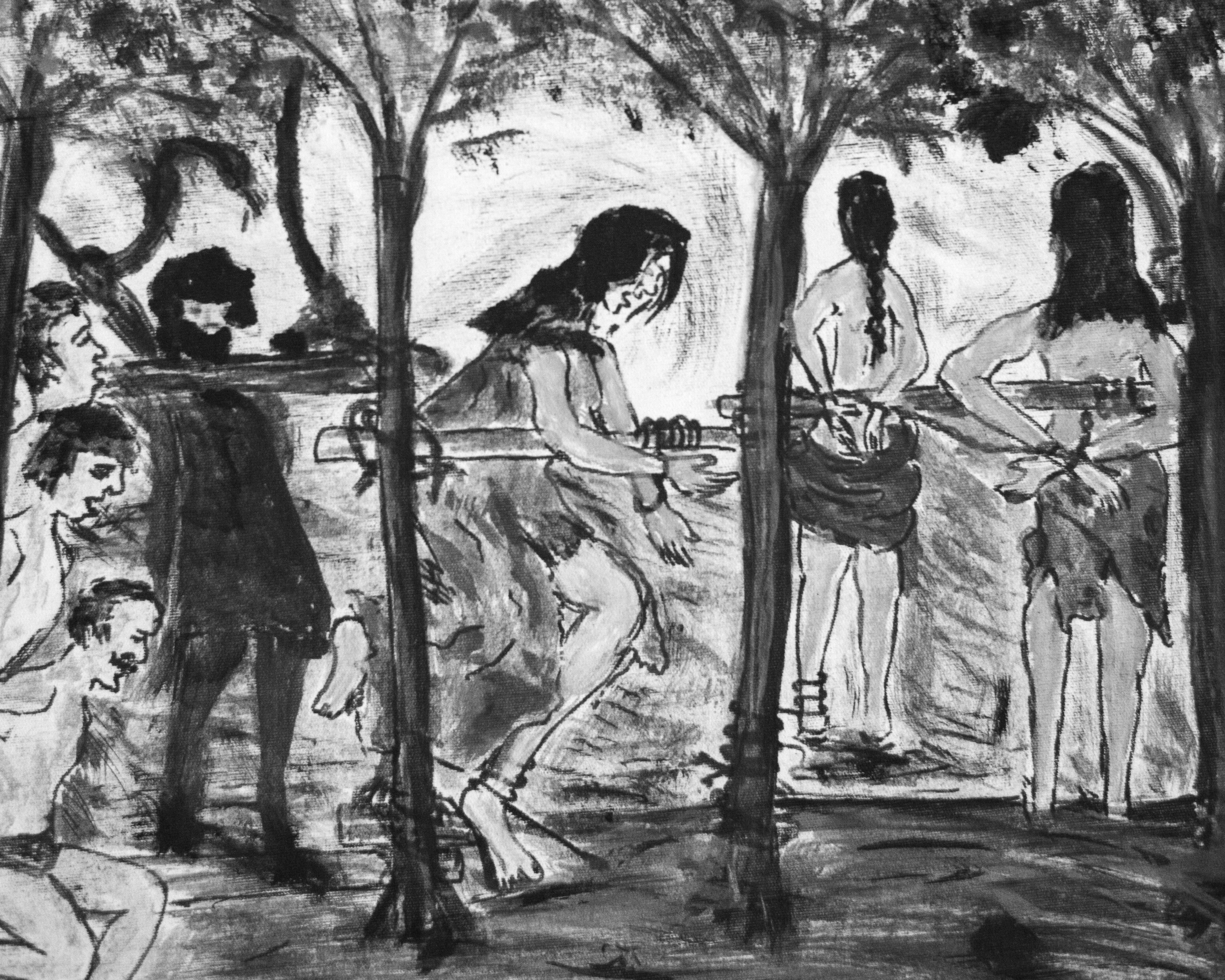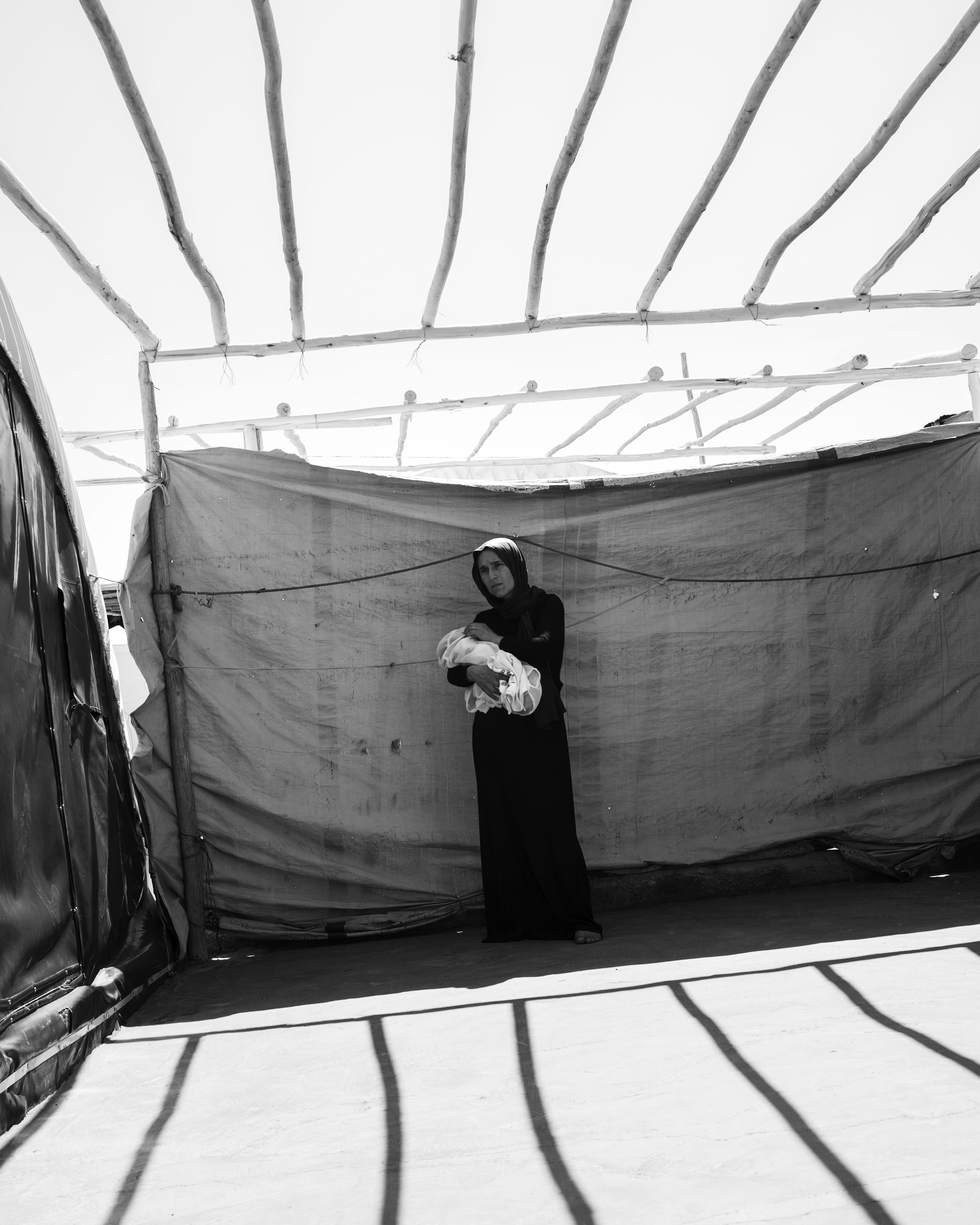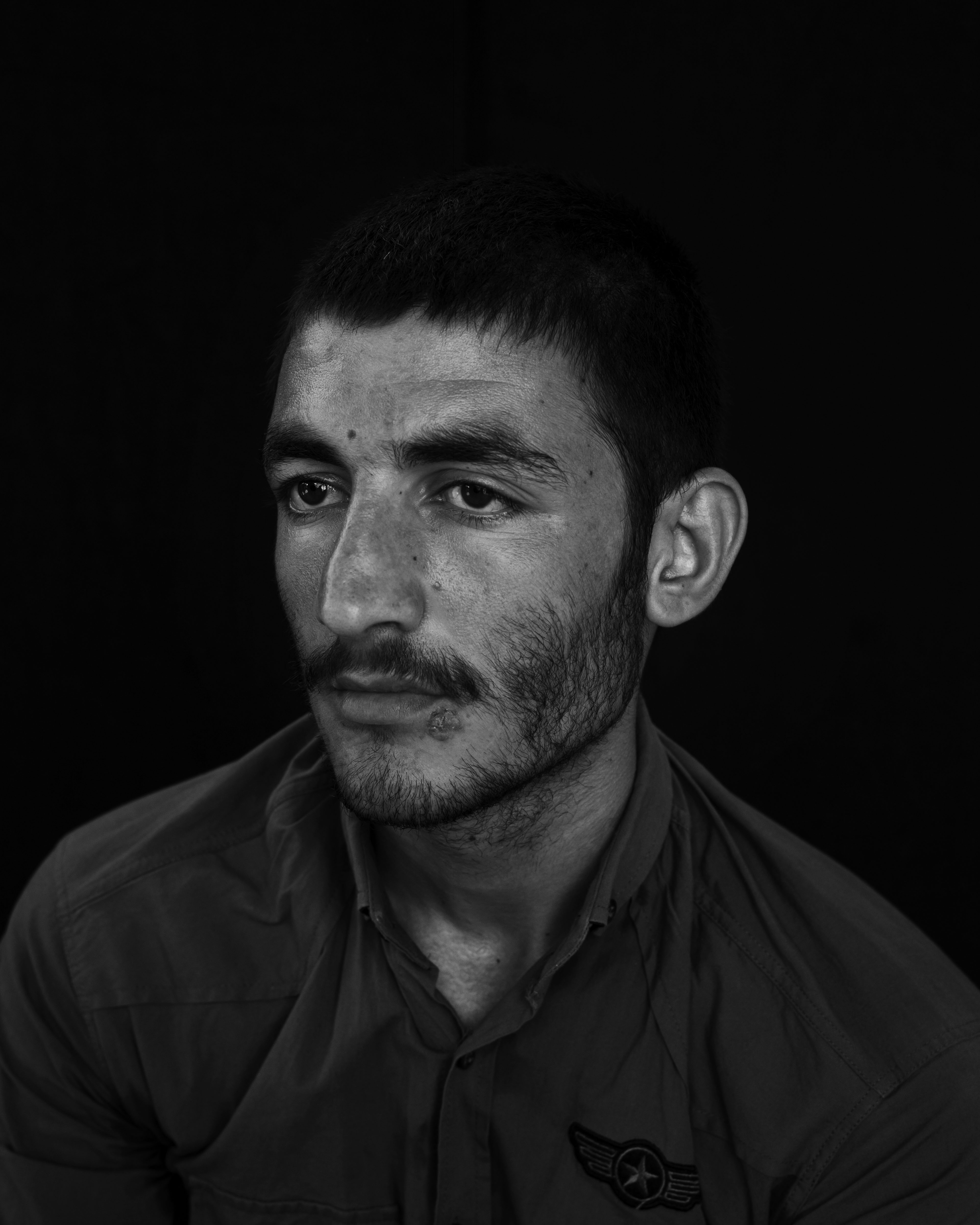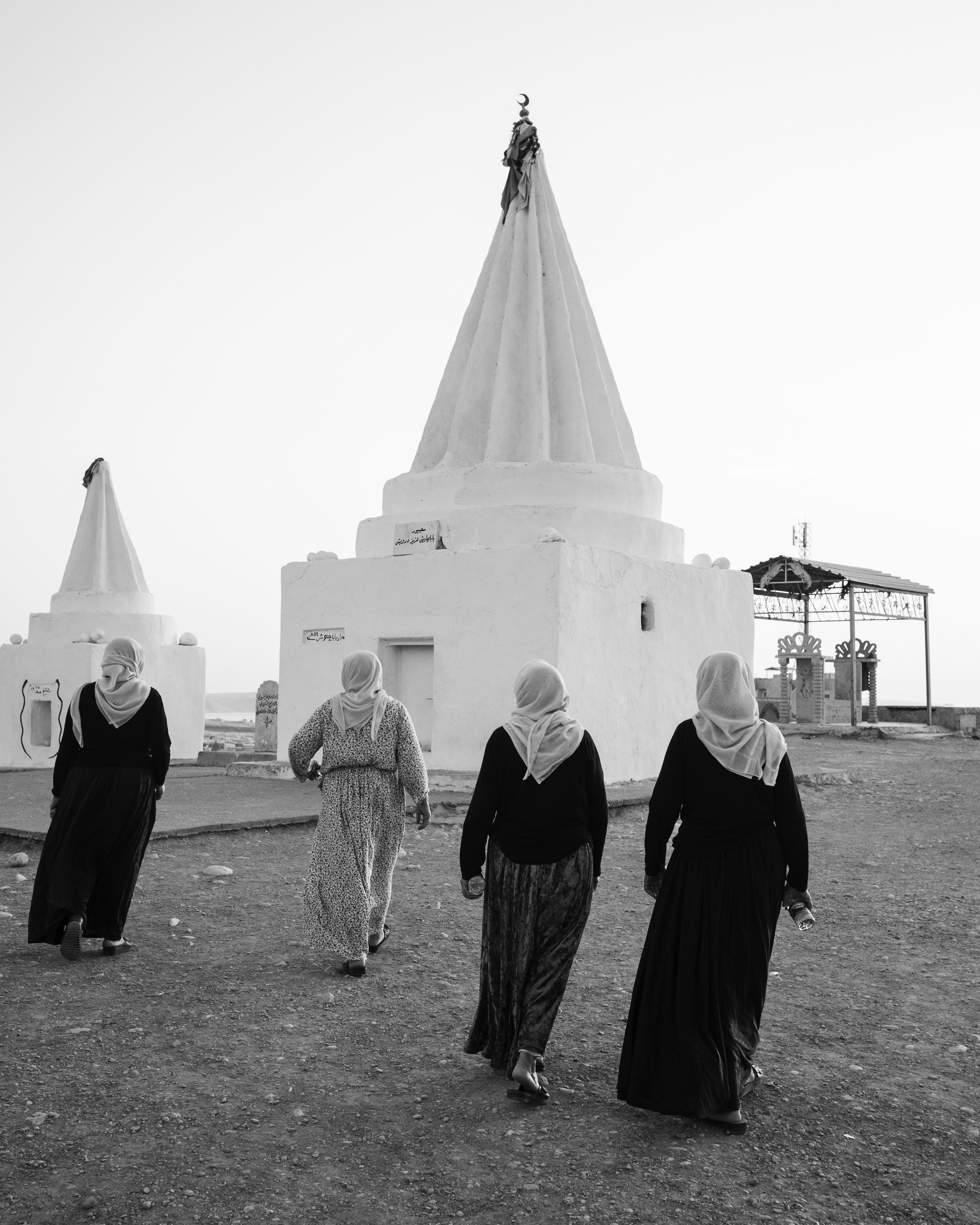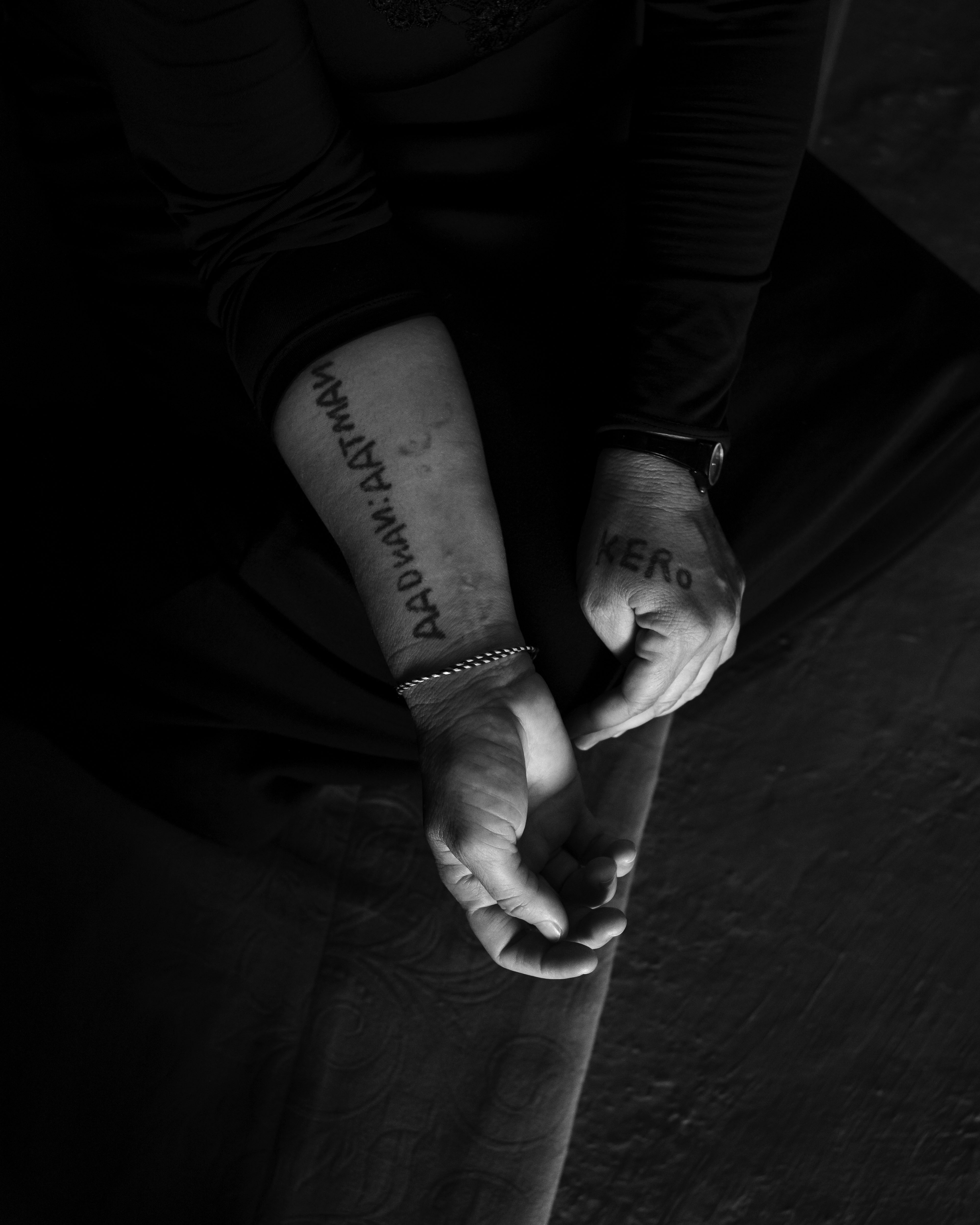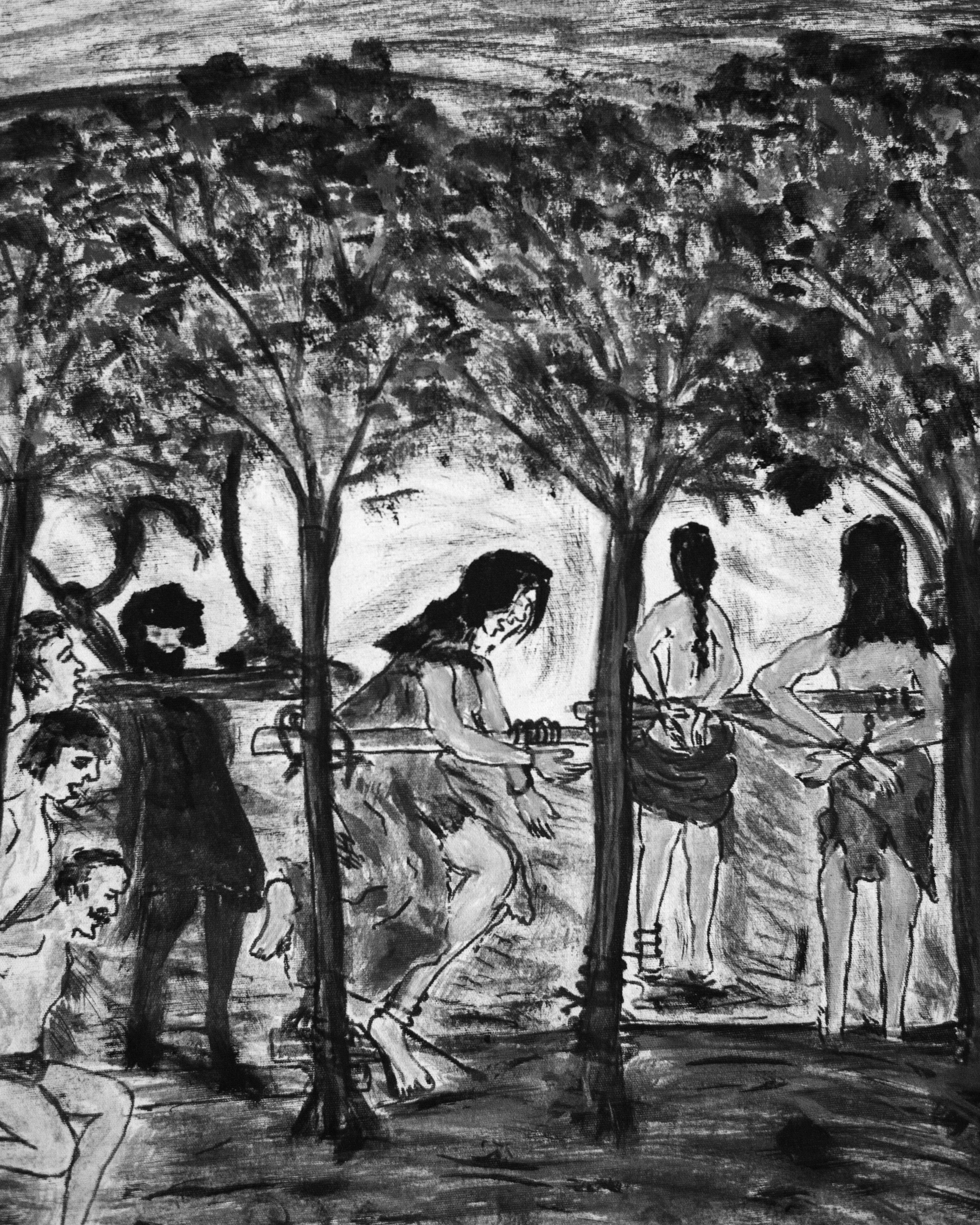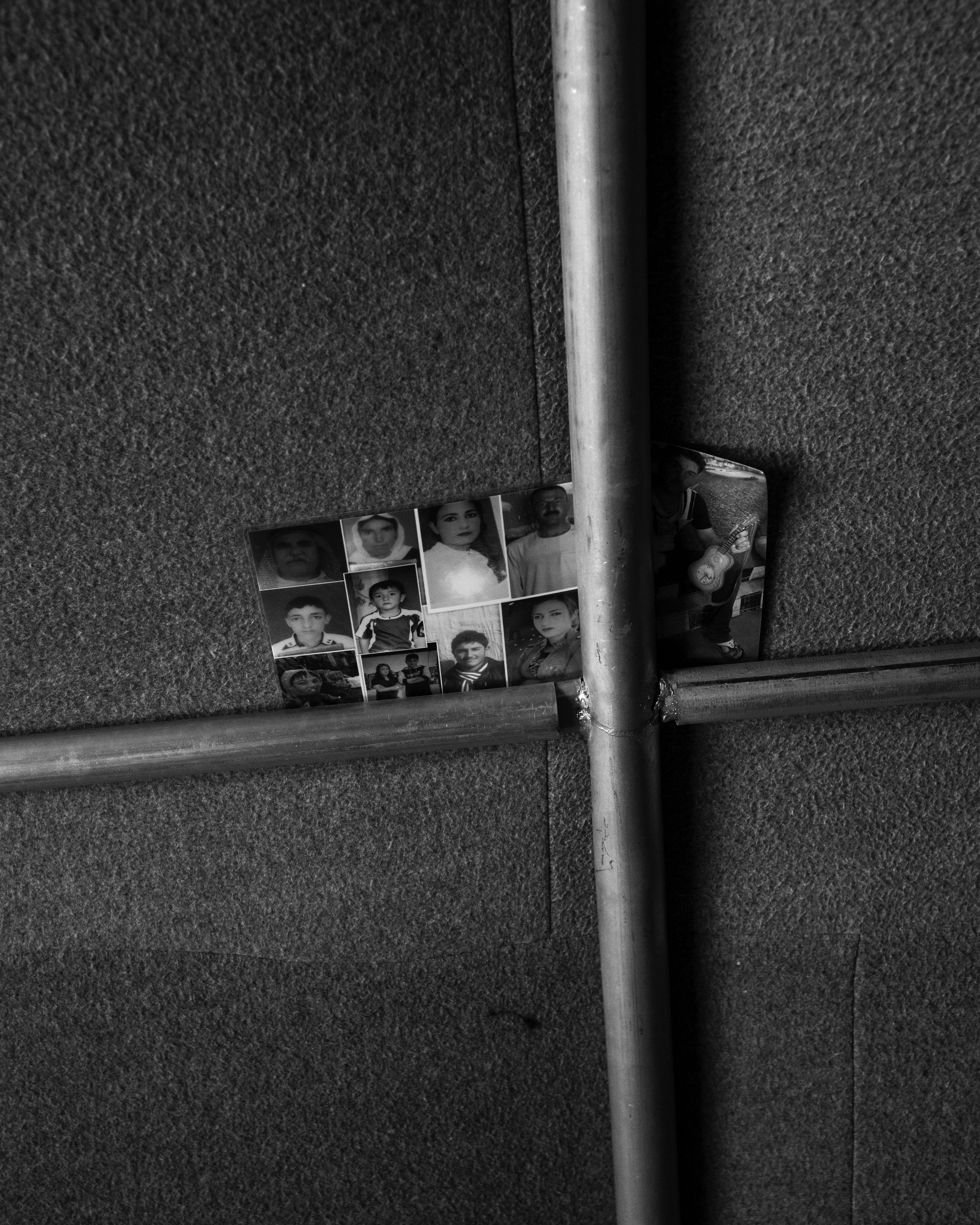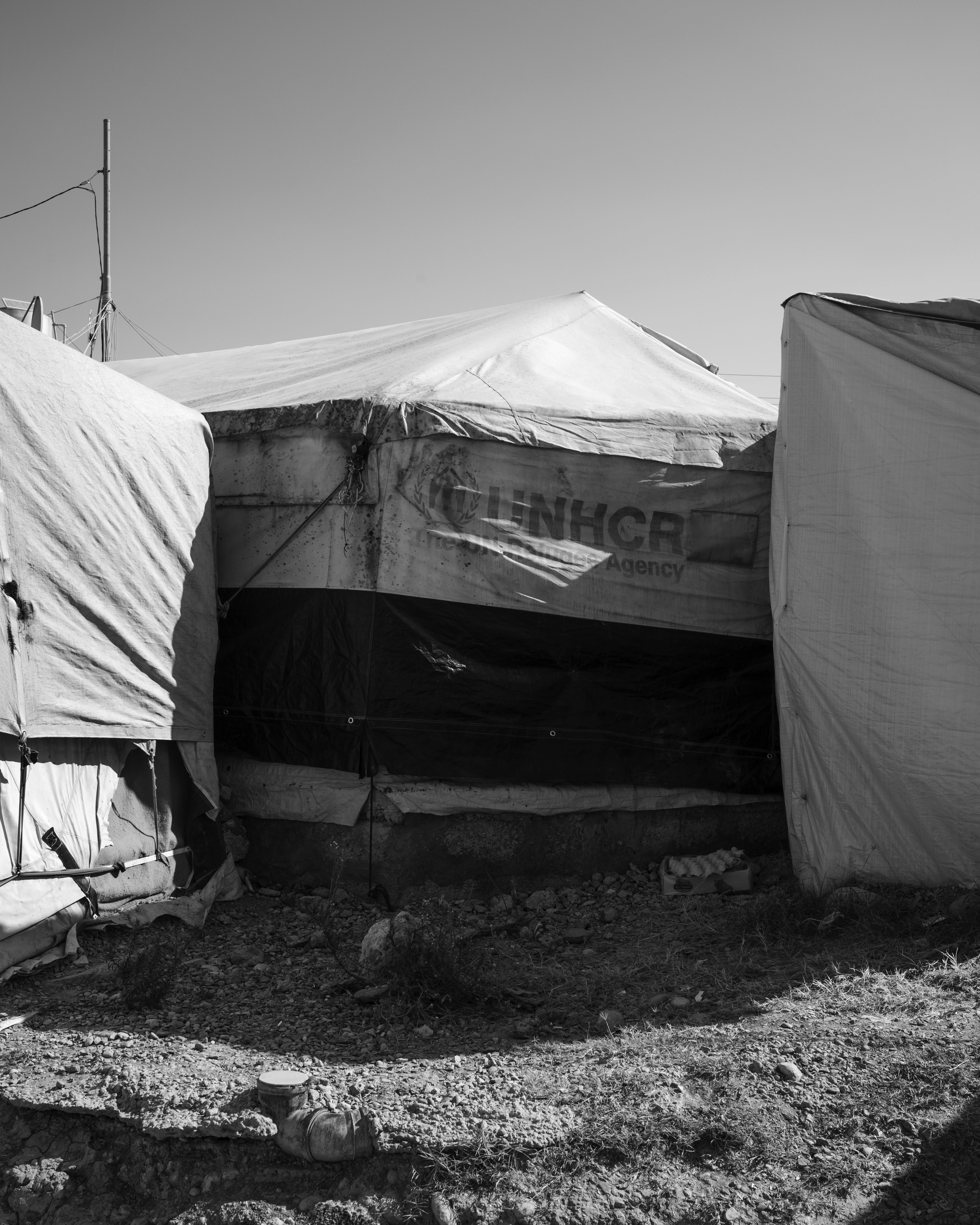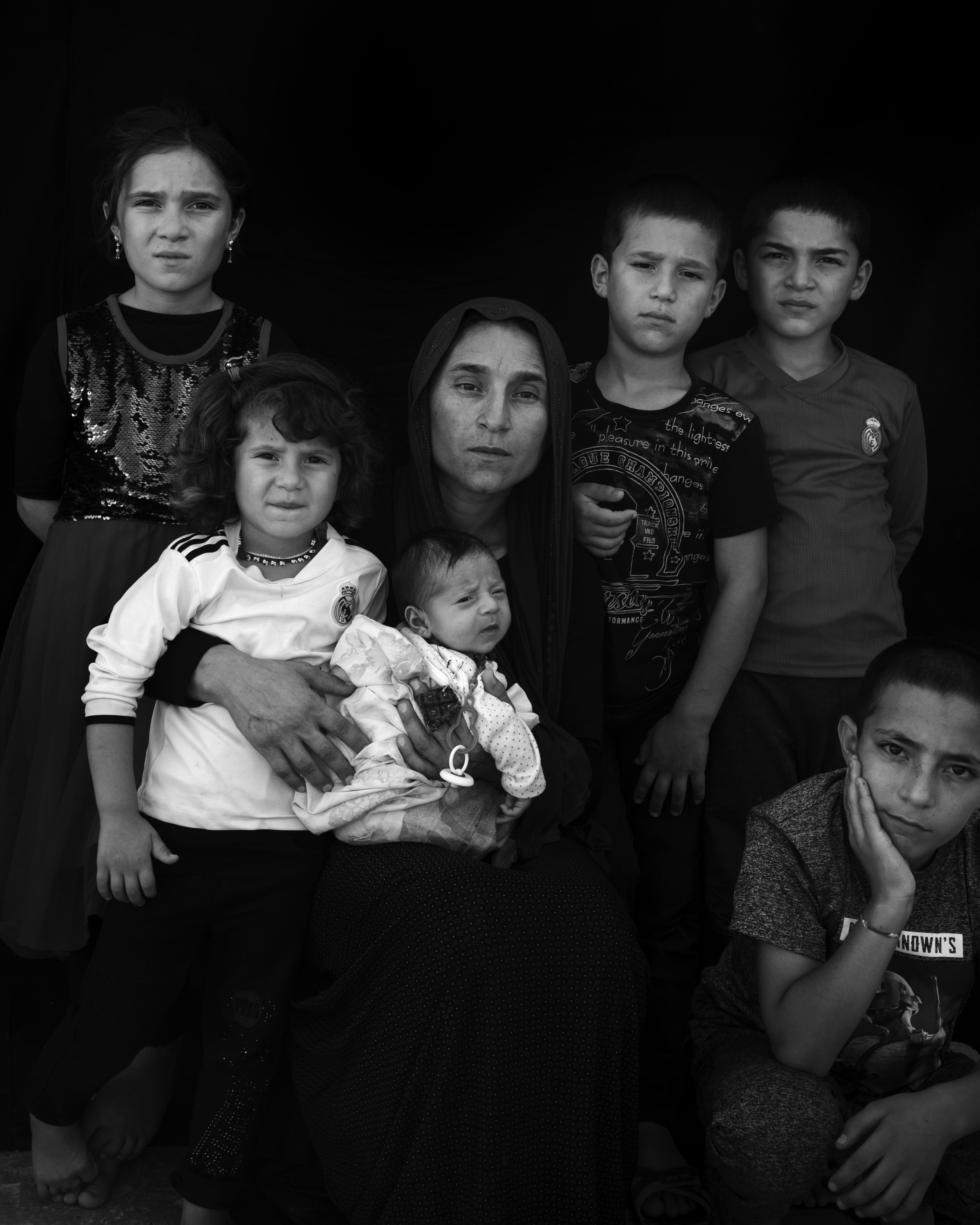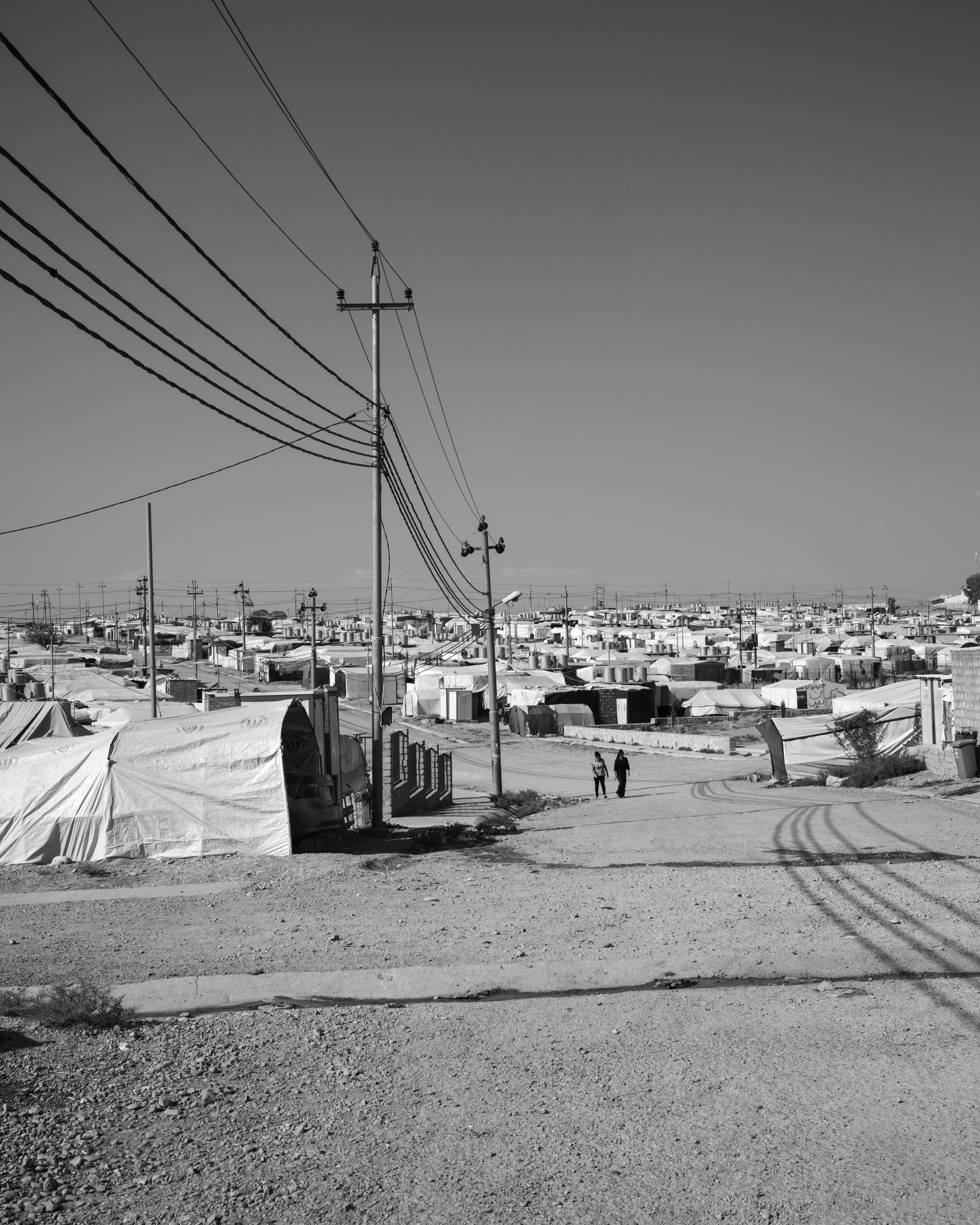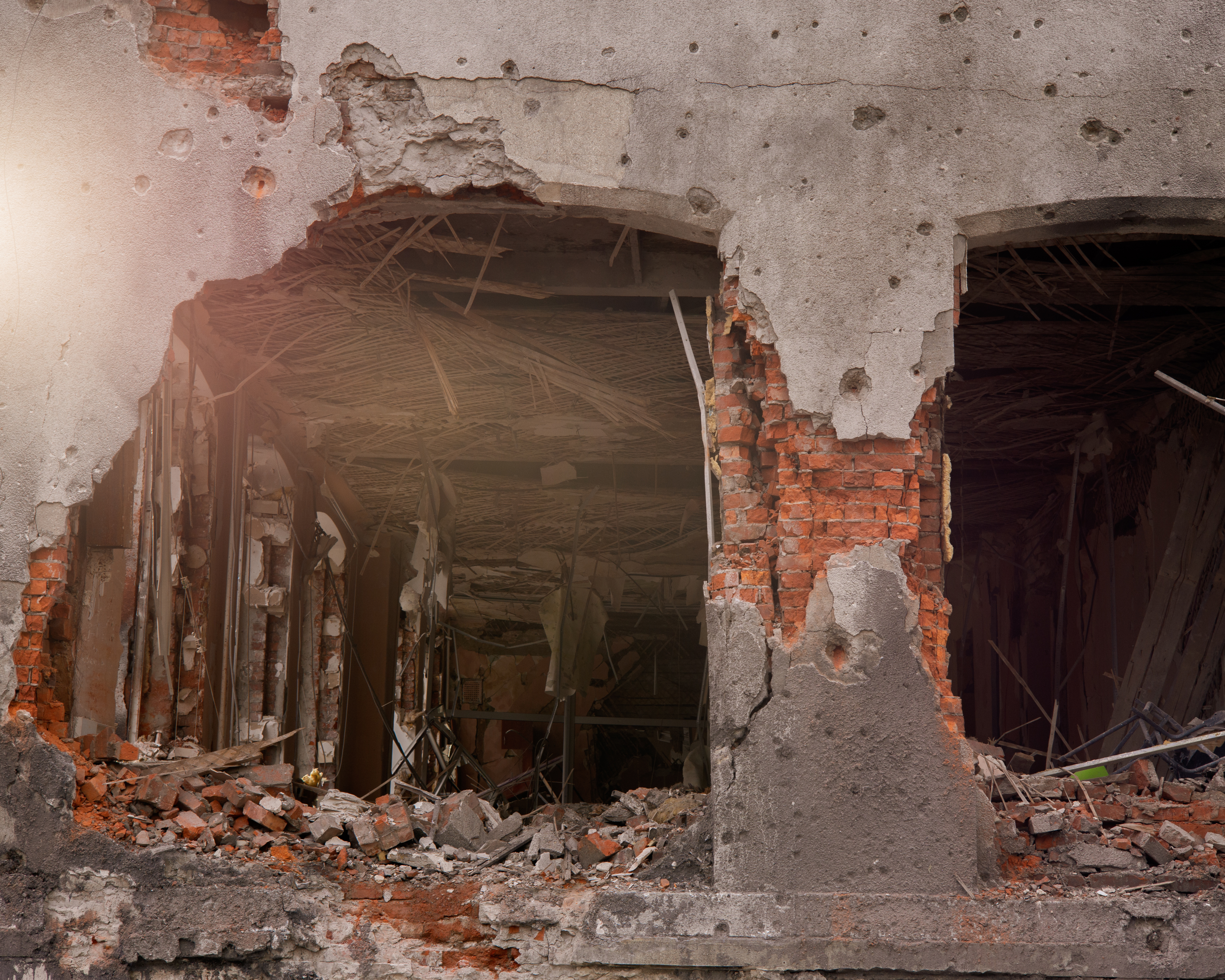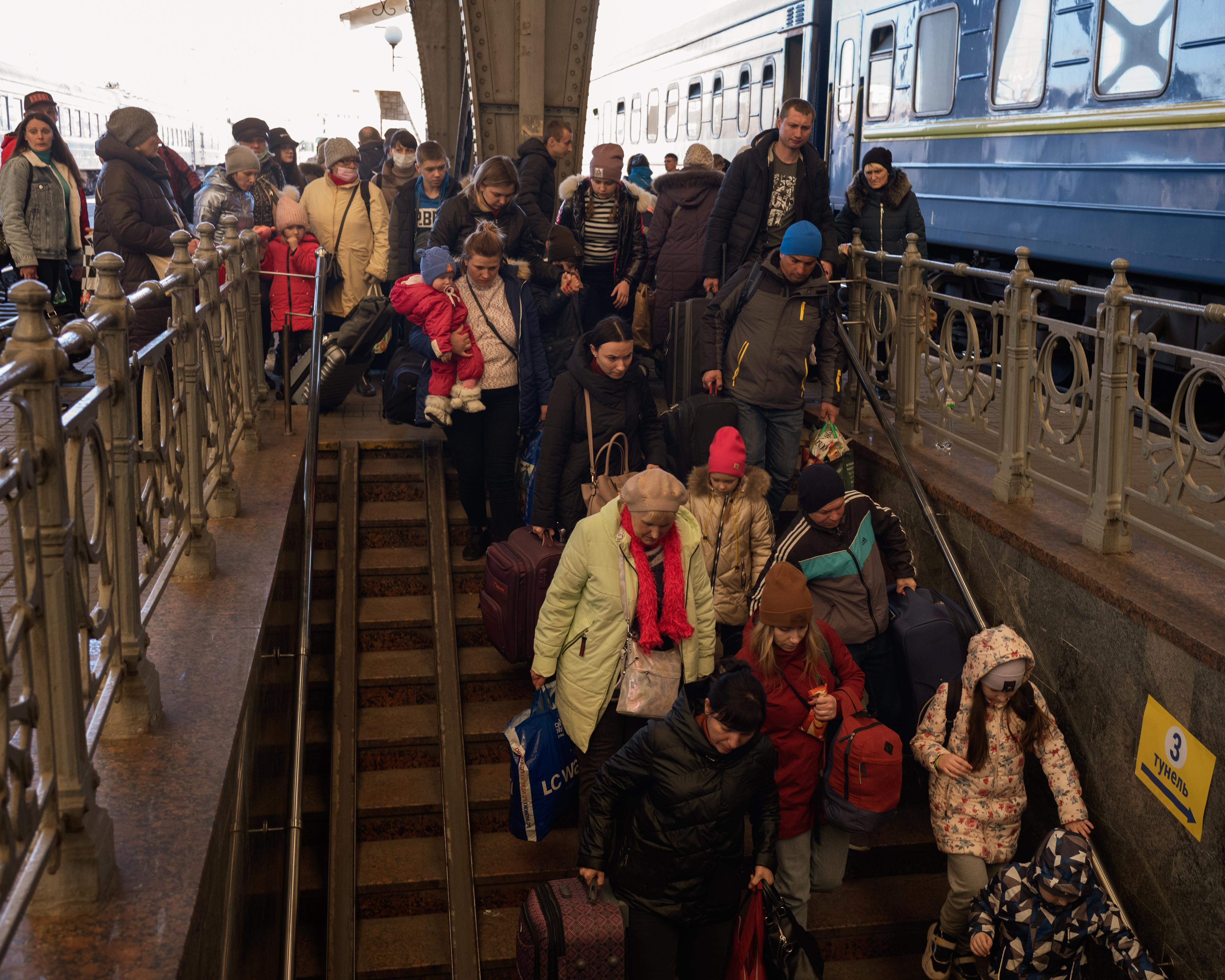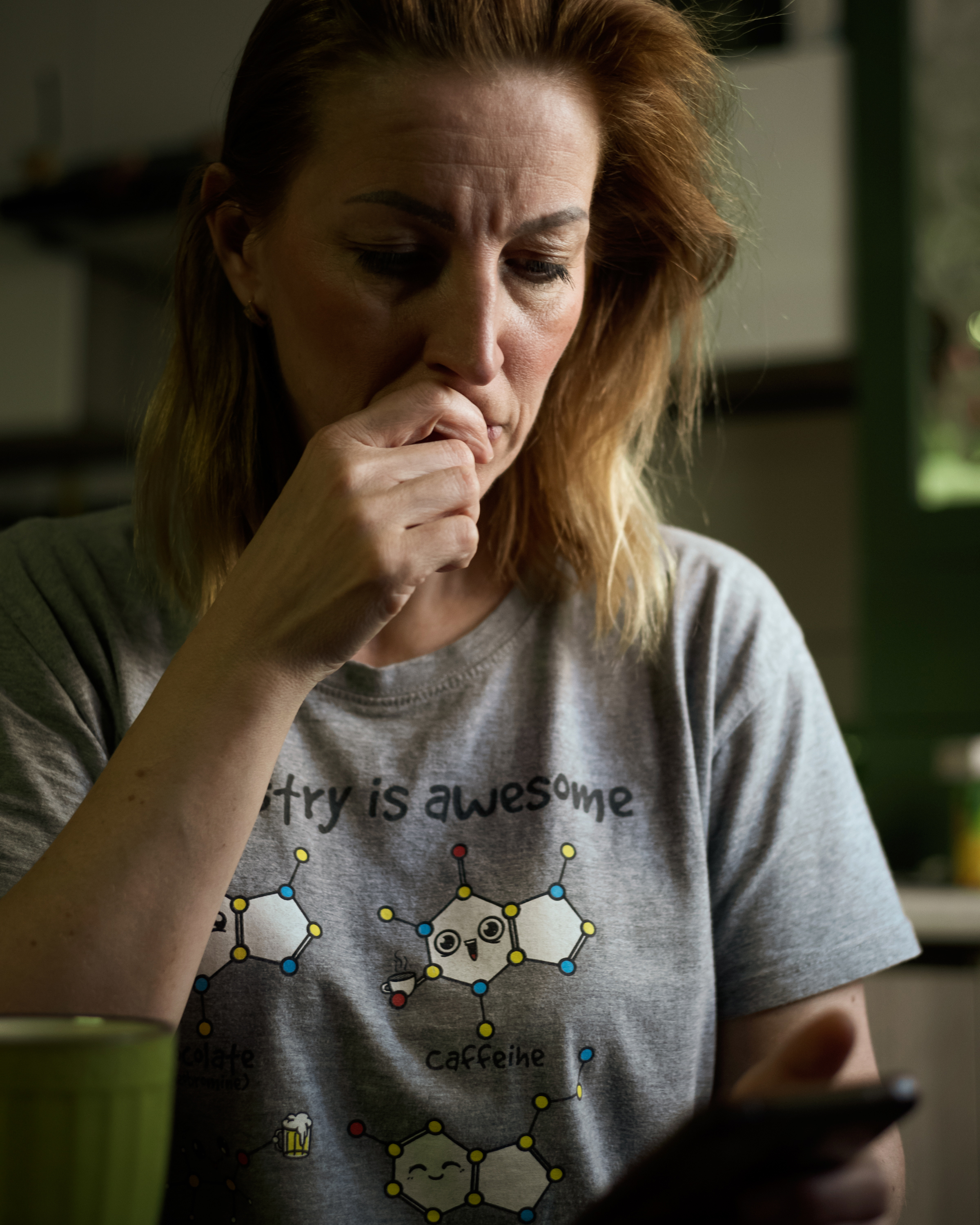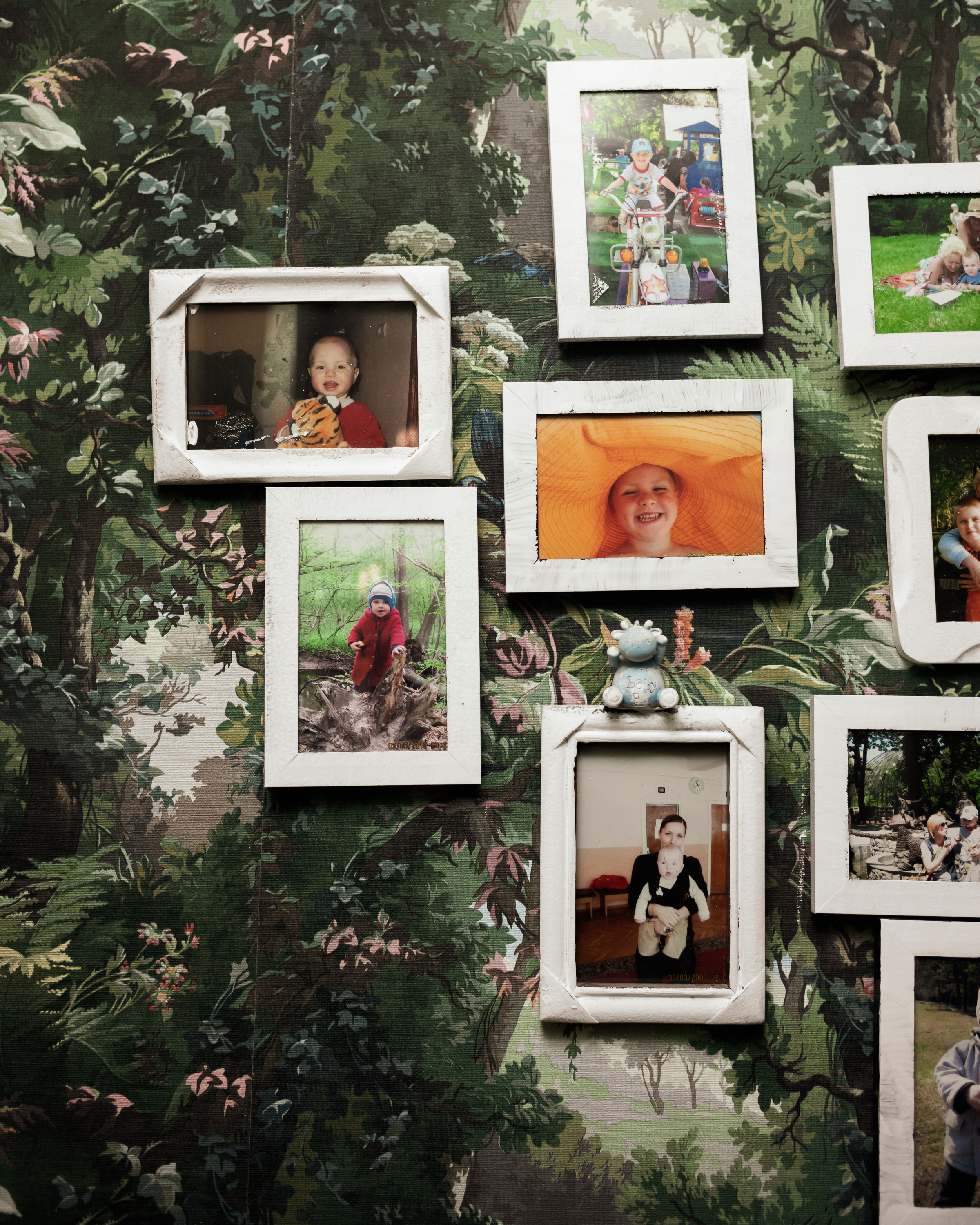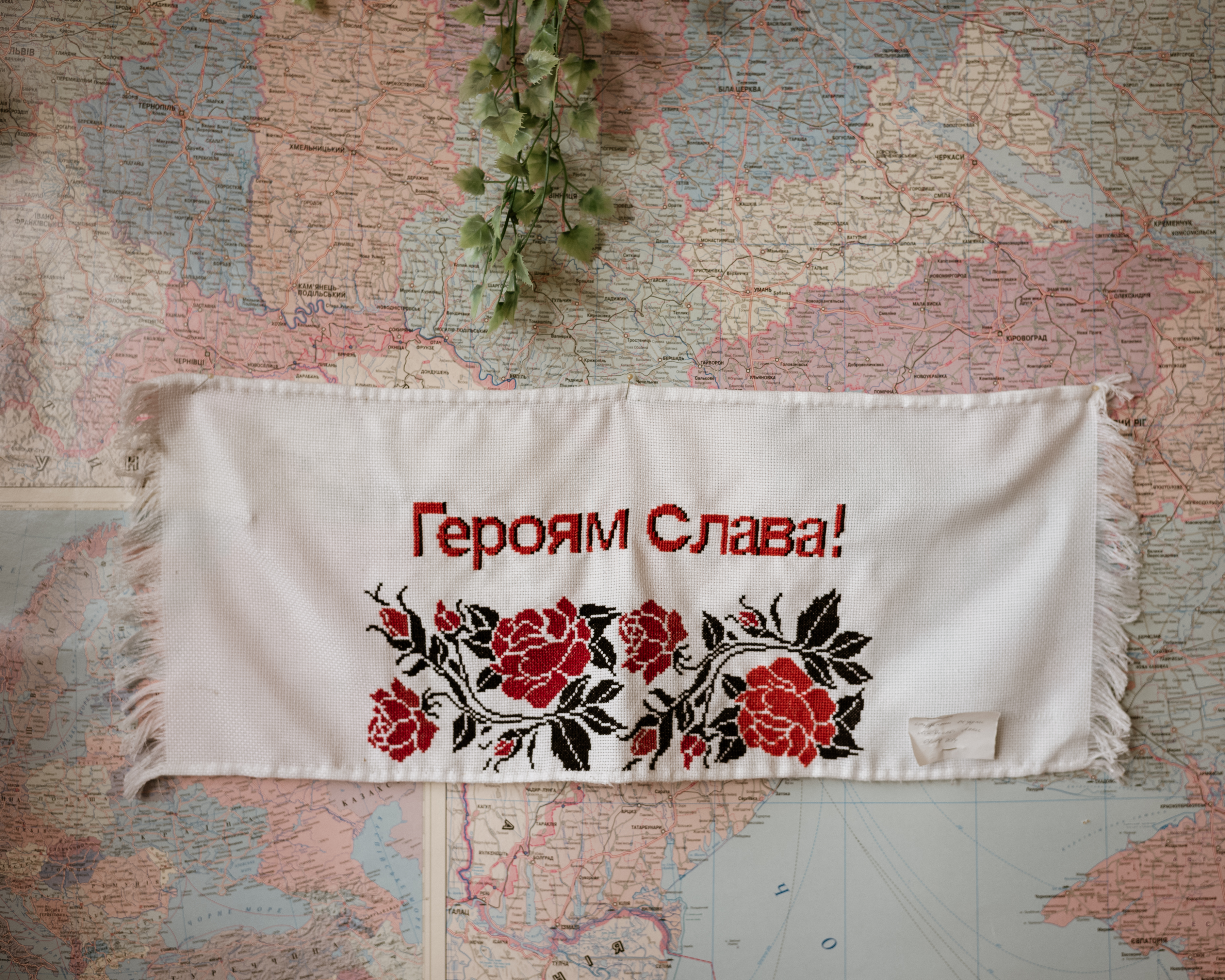That year, we saw things we had only read about in history books about the Second World War.
The Syrian Civil War brought the army into our streets. There were many checkpoints, with soldiers carrying guns. Tanks were targeting defenseless protestors, shooting them down.
A few months later, the war spiraled into a civil and international conflict. Soldiers from all over the world descended on my country. I saw dead bodies in the streets and there was blood everywhere.
Fot. Agata Grzybowska dla “Gazeta Wyborcza”
One Day
One day, I came to understand that the world is much more than my immediate, familiar surroundings. I set out to document humanitarian crises. I wanted to learn about individuals who have persevered when deprived of a home that is safe; whose home suddenly became unsafe; who have nowhere to turn, to return to, to run to; who, as refugees, strive to restore happiness and a level of stability in a new home.
This subject gnawed at me, shadowing me on my travels to Iraq and Lebanon, until one day, under fire in Saltivka, a district of Kharkiv, Ukraine, I entered a bombed-out block of flats. Scorched corridors, front doors torn from their hinges, abandoned apartments suspended in a vacuum, no floors left between their walls. In one apartment, I saw a family album lying open on a bed, as if someone had hurriedly pulled out one, and only one, photograph of a loved one before evacuating the burning building. In another room, my eyes came to rest on shattered plates and splintered glass on the carpet, surrounding a picture of Lenin that must have fallen from a bookshelf. At that moment, I recalled the words of Abu Nizar, a Syrian living in a refugee camp in Lebanon, who a week earlier had told me: “When you ask me what I remember of my home in Syria, I remember a wooden cupboard filled with crockery and beautiful glassware we received on our wedding day. And then a missile hit our house. And everything was destroyed.”
What is home? Over the course of twelve years of documentary work, I have come to understand that the concept of home is a tale of woven dreams. Dreams we essentially share in common.
This is a story about people, told in their own words.
This is a story of home.
Okay, let’s start again.
One day…
—Agata Grzybowska, photographer
Follow Alaa Al-Ali through the hallways of the Gaza Hospital, a building which has become a shelter for people who have lost their homes and been displaced by war.
Beirut, Lebanon, 2022.
In Syria, we built our home. I tell the children we used every single brick we could find in the area for the construction. Unfortunately we never managed to complete the second floor. The war broke out. Assad’s troops surrounded the city, plunging our world into darkness.
—Fadia Muhammad, Lebanon
Fot. Agata Grzybowska
My name is Alaa Al-Ali. I was born, in Lebanon, as a child without a country. I was labeled a refugee from the start. I am Palestinian.
Home is a place and its people.
For thirty years, the Gaza Hospital building in Beirut, the Lebanese capital, was such a home for me, owing to its importance to the Palestinian community, and because of the people there and their stories.
Fot. Agata Grzybowska
Gaza Hospital
In the Sabra camp in Beirut, there is a building called the Gaza Hospital. This hospital was built, in 1975, by the Palestine Liberation Organization and the Palestine Red Crescent Society.
The hospital was one of the few structures left standing after the Sabra and Shatila Massacre and the 1982 Lebanon War. During the war, the medical staff was evacuated, and the hospital buildings were converted into a shelter for survivors of the massacre.
The Gaza Hospital remains to this day—a symbol of survival in Sabra and Shatila—serving as a shelter for those who continue to escape war, and who, against all odds, seek to establish some form of normalcy.
“One who loses their home loses their dignity.” So goes a Syrian saying. Ibrahim, a refugee from Syria, adds: “Being deprived of a home, being homeless in exile, robs us of our sense of security. This, combined with a lack of financial security, makes our life a constant struggle to find rent money, so that we do not become homeless again, end up back on the streets again.”
Bejrut, Liban, 2022.
Fot. Agata Grzybowska
The Lebanese People
The Lebanese people welcomed refugees from Syria and the Palestinian territories into their country. As of this writing, 1.5 million Syrian refugees and 13,617 people of other nationalities are living in Lebanon, according to the UNHCR. The Lebanese themselves are in need of help. The country is on the verge of humanitarian catastrophe. Widespread unemployment, depreciation of the Lebanese pound, chronic power outages, and ongoing economic crisis have pushed more and more Lebanese to the brink of poverty.
VR movie about a Syrian family, from Aleppo, living in the Gaza Hospital in Sabra. Beirut, Lebanon, 2022.
The aroma of coffee in the streets of Sabra and Shatila always carries me home.
Fot. Agata Grzybowska
Genocide
“In August 2014 the Sinjar region of Iraq was invaded by the so-called Islamic State (ISIS). Approximately 400,000 Yazidis fled to the neighboring Kurdistan Region of Iraq and tens of thousands took refuge on Mount Sinjar, where they faced near starvation. The rest, unable to flee, were killed or taken into captivity and subjected to horrific acts of violence—enslavement, forced labor, conscription, torture, and rape.”
(Source: www.nadiasinitiative.org/the-genocide)
Fot. Karol Grygoruk
I am thirty-four. I lived with my husband and our four children in Sinjar District, Nineveh Province. My husband had a job, we had a car, the children went to school. We lacked for nothing.
One day, militants bearing black flags descended on our village. They were soldiers of the so-called Islamic State.
I was kidnapped with my daughter and tortured. All Yazidi women were subjected to this. We were a commodity, our bodies to be bought and sold.
Base ze swoją córką Hope. W 2014 roku Base została porwana razem z innymi jezydkami ze swojego domu w regionie Sindżar. Dziś mieszka w obozie uchodźczym w Dohuk w irackim Kurdystanie, 2019
I want my voice to be heard. Yazidi women who were freed from captivity and remain in Iraq need help. They need money. There are dozens of orphans without family, without siblings, living in our tents. These children need food, they need schools to go to.
This story is not just mine. To whatever degree we were subjected to cruelty as captives, it is a common experience Yazidi women have suffered.
The Yazidis
“The Yazidis are a small minority indigenous to Mesopotamia who are united by their ethnic and religious identity.
Yazidi history recounts seventy-three instances of genocide—the latest which was conducted by ISIS. The constant threat of persecution led many Yazidis to settle in the northern region of Iraq (namely Sinjar), where the mountainous terrain provides some protection.”
(Source: www.nadiasinitiative.org/the-genocide)
Charków, Ukraina, 2022.
Fot. Agata Grzybowska dla „Gazety Wyborczej”
When You Hold a Baby in Your Arms
I have been told many accounts of escape. Leaving one’s home is always harrowing, but it is even more difficult with a child in your arms. When your goal is not to protect your own life, but to save the life of one who is dependent on you.
Fadia Muhammad, a Syrian woman I met in a camp in Lebanon, once dreamed of a house full of family. A house that was missing nothing. For four years, she and her husband had been trying to have a child. When their first son, Nizar, was born, he slipped out of the doctor’s hands during the delivery and suffered a brain injury. Their second son, Rafaat, was born during the bombing of Damascus. They were escaping the city by car. Rafaat was born in that car, during the war, in the dark, as bombs fell.
And then it comes back to me, the newborns in incubators in the neonatal intensive care unit down in the damp basement of the children’s hospital in Zhytomyr, Ukraine. Those children were also born under bombardment. Wherever there is war, maternity and children’s hospitals are being targeted. I cannot fathom a mother’s fear. But I can envision a situation in which you shake with fear not for your own life but that of someone you hold close.
Photo: Agata Grzybowska
Not even in our darkest nightmares could we have imagined something like this happening to us. Not me, not my family, not our neighbors. Never did I think anyone would tear me from my family by force. They took my husband and our three sons. I have not heard from my husband in five years. I do not know if he is still alive.
In early March, 2022, Russian troops shelled Zhytomyr
To ensure the safety of my son, Elisha, I took him to Italy.
Then I returned to Ukraine, to my home, to help out, to fight together for our Ukrainian homes.
Żytomierz, Ukraina, 2022.
Fot. Agata Grzybowska dla „Gazety Wyborczej”
Svitlana
Before the war, Svitlana sewed wedding dresses and dolls. Since 2014, she has volunteered near the front line. She collects and distributes anything that is needed: medicine, proteins, bulletproof vests, helmets, etc.
Svitlana’s husband, Sasha, was born in Russia, but has been a sapper in the Ukrainian army for thirty years. He was one of the soldiers who fought in the vicinity of Kyiv during its defense, and later liberated towns and villages that had been under Russian occupation, including Hostomel, Bucha, and Borodyanka.
In April, his unit was redeployed to eastern Ukraine. He went to defend the Kharkiv region and the Donbas. It was there that a Russian sniper shot him in the head and arm. He survived but lost 70% of his vision in one eye.
